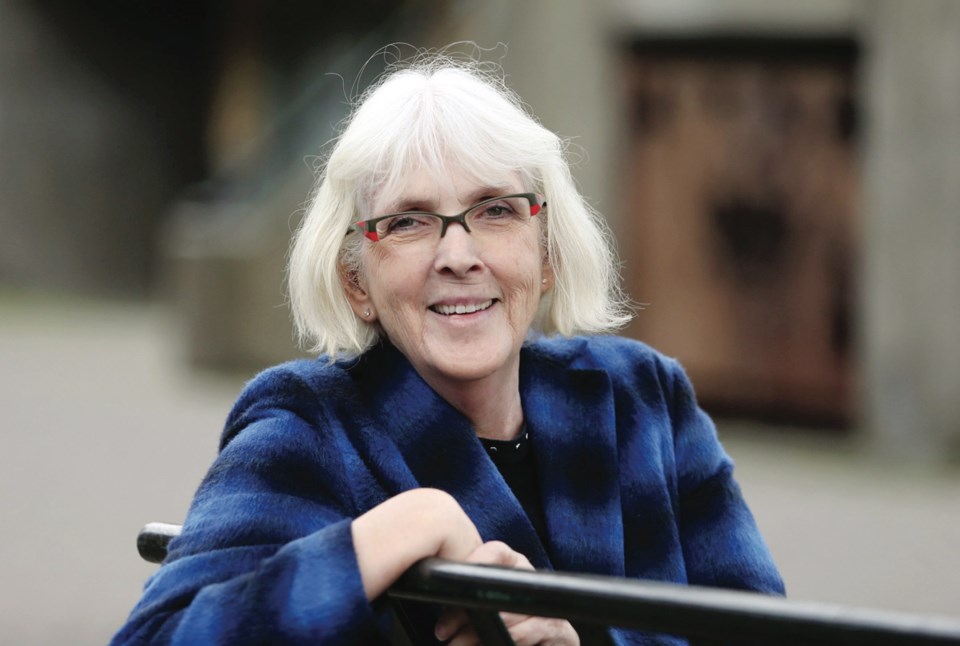What: The Valley
Where: Belfry Theatre
When: Opens tonight, continues to Feb. 28
Tickets: $23 to $48 (250-385-6815)
When Robert Dziekanski died during an infamous police Taser incident at Vancouver International Airport in 2007, Joan MacLeod was more than appalled.
She was enraged.
“I just thought: ‘Those cops are pigs,’ ” the Victoria playwright said.
MacLeod still doesn’t condone the actions of police that day.
However, she eventually became more empathetic to their situation.
The death of Dziekanski got MacLeod — renowned for her socially conscious plays — interested in confrontations between police and the mentally ill. She read widely, including commissioner Robert Braidwood’s report on Dziekanski’s death and Andrew Solomon’s book Noonday Demon: An Atlas of Depression.
The Dziekanski case, although not directly alluded to, is partly the inspiration for her play The Valley, opening tonight at the Belfry Theatre.
Now in its fifth production following a Calgary première in 2013, it’s about Connor, an 18-year-old aspiring writer who lapses into depression and drops out of university.
The teenager raises a ruckus on Vancouver’s SkyTrain, leading to a clash with police that recalls both Dziekanski and Sammy Yatim, the Toronto teen fatally shot eight times on a streetcar in 2013.
MacLeod says the more she read about such incidents, the more she could sympathize with police, as well as the victims.
She notes in the case of Yatim, who drew a switchblade, it would have been frightening not only for him and passengers but the officer who raised his gun.
“It’s very easy to say [the policeman] is just a bully and an a-----e and all that. But who knows? Maybe he flips out and he’s reacting in fear. It’s very complicated.”
MacLeod aims to bring a level of moral complexity to The Valley. She said when writing it, she changed her mind “a million times” about whether the police officer who clashes with Connor is a bad or good character.
In preparation for The Valley, MacLeod made a list of her own dealings with police. They include the time her purse was stolen in a New York pizza joint. On another occasion, thieves broke into her car in Victoria.
Her most unforgettable encounter happened as a teenager. She and a girlfriend switched price-tags on items at a Woolco store in Vancouver.
Ultimately, MacLeod backed out of the caper. However, her friend was caught by a cashier. Police were summoned. Because her pal was 16, she was arrested and convicted.
“We were hauled off in a police car and all that stuff. It was terrifying,” said MacLeod, who was allowed to walk free.
Although she didn’t suffer depression like Connor, MacLeod was also a college dropout.
She later got her academic career back on track, studying writing at the University of Victoria (where she’s now a writing professor) and taking a graduate degree at the University of British Columbia.
Today, MacLeod, who was awarded the 2011 Siminovitch Prize in Theatre, is regarded as one of Canada’s leading playwrights.
During 22 years of teaching, she has witnessed her share of students unable to cope with their first year of college. Some are immature; some are just lonely. Others are high-school stars who found the higher academic standards of university overwhelming.
For some, the situation can lead to emotional breakdown.
“I’ve never had a year in my teaching life where I didn’t have students who struggled with mental illness at some point during the year,” MacLeod said.
Many of her best-known plays have examined social issues. Amigo’s Blue Guitar is about refugee resettlement; The Shape of a Girl was inspired by the bullying death of Reena Virk.
MacLeod doesn’t mind her reputation as a “social issue” dramatist.
However, she takes care to avoid preachiness in her dramas. She says, at heart, her plays are about families and their stories.
“I don’t want to just make a speech,” she said.
“I want my plays to be works of art first and a good night’s entertainment. That’s important to me.”



